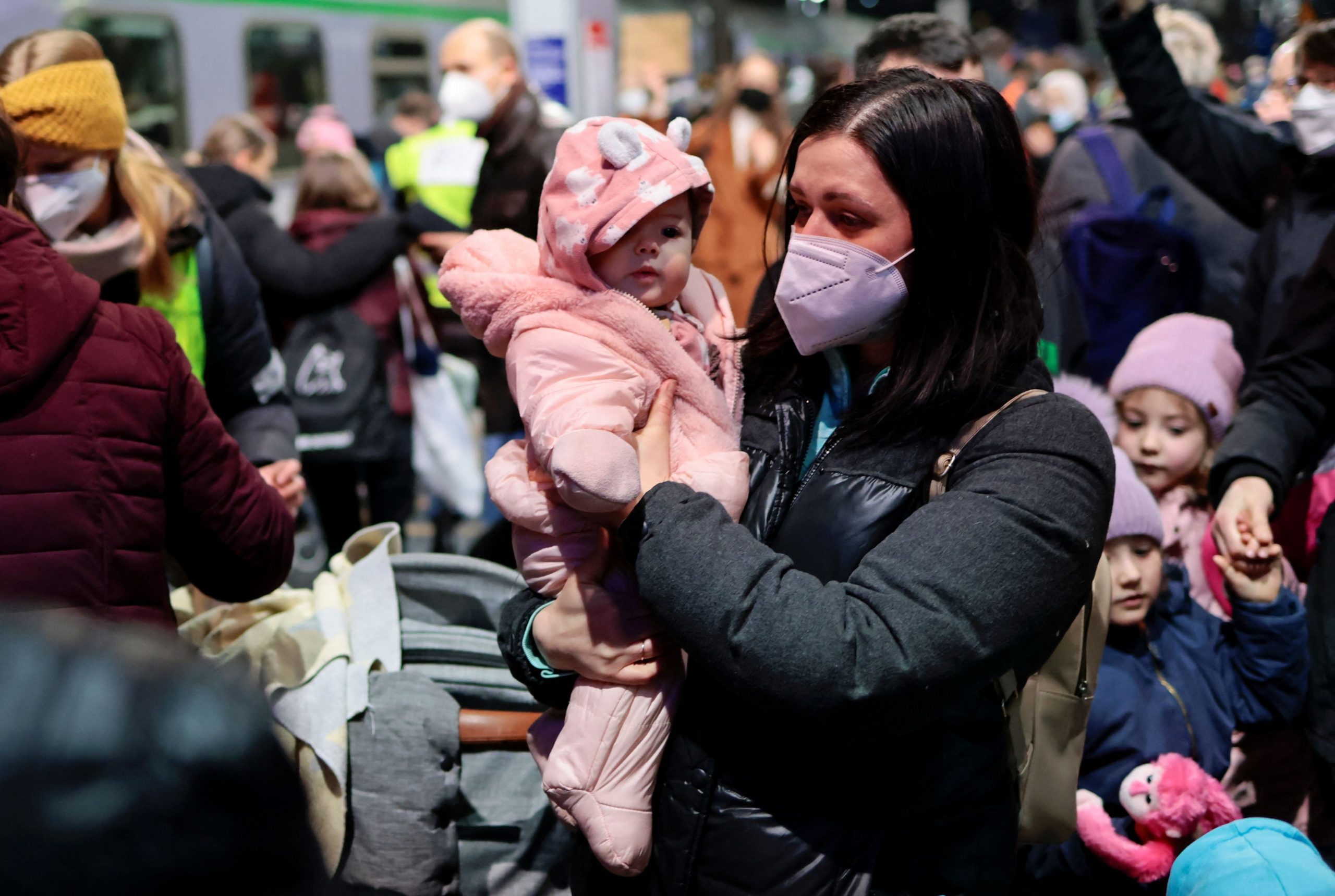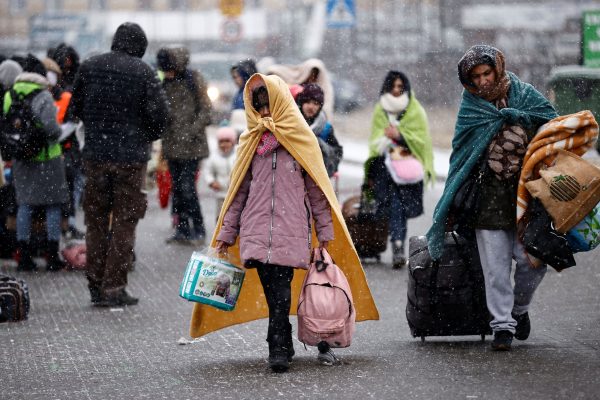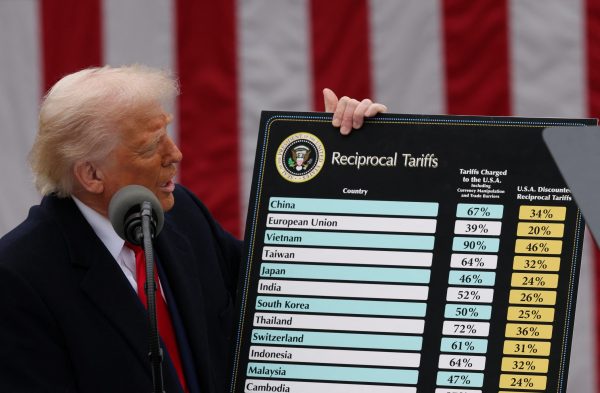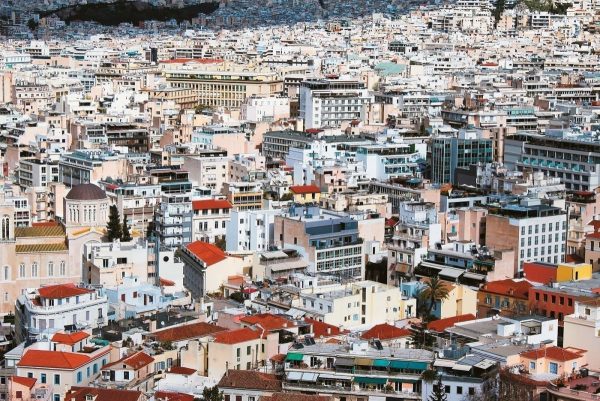
For the 28th day, the Russian invasion of Ukraine continues with more than 3.5 million citizens having left the country. Most of them have fled to neighboring countries, such as Poland, where more than 2 million refugees are currently housed.
It is estimated that since the beginning of the war in Ukraine, about 15,000 refugees have crossed the Greek border.
Ukrainian refugees entering Greece have one year of temporary protection with the right to access the labor market and medical care. During this period, the Asylum Service will provide refugees with one-year temporary protection, with the right of access to the labor market and medical care.
But what happens if after 12 months these people continue to remain in Greece without being able to return to their country which is being destroyed by the Russian invasion? 
Concerns
As the deputy director of the Hellenic Refugee Forum, Nikodimos Maina Kinyoua, explained to in.gr, this is something that concerns the Ukrainian community.
According to him, for the Ukrainians an effort is being made at European level to give a special regime, which has to do with the procedures to be followed.
What is still valid for refugees in Greece is to get the legal residence permit of an asylum seeker or a recognized refugee and then the social security AMKA number and the tax registration number in order to have access to medical care and services.
As Mr. Kinyua explains, the only case in which the refugee status decision is revoked is the country of origin being judged by the UN safe for return. That is, if it is judged that there are no longer reasons for which they have been granted asylum.
“Ukrainians, in general, will all be recognized as a single mass, that is, everyone’s application will not be considered on a case-by-case basis.”
This seems to be troubling the communities as it puts in the same status a resident of Ukraine, whose area in which he lived has suffered irreparable damage, with someone who lived in an area of the country that was practically untouched by the war.
“Will they be able to go back?”
In case, for example, that in the next 12 months, where according to the existing decision the residence permit in the country has expired, the refugees will have to return to Ukraine.
“What will someone from Mariupol, which has been completely leveled, do? Can that person go back? ” wonders Mr. Kinyua.
“What will also happen if Ukraine gives autonomy to these regions? This person should go back where? In a dilapidated area that has nowhere to stay and work? So the issue of asylum for him will be one way. So the subsidiary protection regime that is being given now is problematic,” he explains.
According to Mr. Kinyoua, the Ukrainians who arrived in Greece after the start of the war should be recognized as refugees and have the same rights as refugees.
“The government is providing housing to Ukrainian refugees in the camps. Today, 15,000 Ukrainian refugees are in Greece. Can these people be accommodated in these structures? The government says it has 30,000 places. What if we exceed this number? Can these people be financially supported by EU money or housed in rooms? With the current regime, it is not possible,” he explains.
Widows and orphans
The images coming from the Ukrainian border are sad. Women huddling their children across the border in search of safer destinations as they try to escape the bombings.
In Greece, it is estimated that about 800 Ukrainians enter the country daily, mostly women with their minor children.
Men aged 18-60 are not allowed to leave the country, having stayed behind to participate in the country’s defense.
“Think that women and children are coming to us. Men are left behind, which means they may be left widowed or orphaned. So what is the protection status of these people? The EU does not answer us as clearly as our government, which, although it loves ” normal refugees ”, but on the other hand does not respond to the fears of these people either,” Mr Kinoua said.
Latest News

Trump Tariffs Jeopardize Growth: Piraeus Chamber of Commerce
The tariffs, aimed at reducing the U.S. trade deficit, are expected to have both direct and indirect effects on the European economy

EU Condemns Trump Tariffs, Prepares to Retaliate
As tensions escalate, the EU is expected to continue negotiations with Washington while preparing for potential economic retaliation.

The Likely Impact of Trump Tariffs on Europe and Greece
Trump tariffs are expected to negatively affect economic growth in the Eurozone while Greece's exports could take a hit.

Motor Oil Results for 2024: Adjusted EBITDA of 995 mln€; Proposed Dividend of 1.4€ Per Share
Adjusted EBITDA for 2024 was down 33% yoy. The adjusted profit after tax for 2024 stood at 504 million euros, a 43% decrease from the previous year

Cost of Living: Why Greece’s 3% Inflation Is Raising Alarm
Greece appears to be in a more difficult position when it comes to price hikes, just as we enter the era of Trump’s tariffs.

Fitch Ratings Upgrades the Four Greek Systemic Banks
NBG’s upgrade reflects the bank’s ongoing improvements in its credit profile, Fitch notes in its report, including strong profitability, a reduction in non-performing exposures (NPEs), and lower credit losses

Trump to Announce Sweeping New Tariffs Wednesday, Global Retaliation Expected
With Trump's announcement just hours away, markets, businesses, and foreign governments are bracing for the fallout of one of the most aggressive shifts in U.S. trade policy in decades.

Inflation in Greece at 3.1% in March, Eurostat Reports
Average inflation in the eurozone settled at 2.2%, compared to 2.3% in February

Greece’s Unemployment Rate Drops to 8.6% in February
Despite the overall decline, unemployment remains higher among women and young people.

Jerry Kalogiratos Highlights Key Role of Energy Transition and Data Demand in LNG Outlook
Energy transition and the prospects of LNG were discussed at Capital Link’s 19th Annual International Maritime Forum, during a panel discussion with Jerry Kalogiratos (Capital Clean Energy Carriers Corp.)
























![ΕΛΣΤΑΤ: Αυξήθηκε η οικοδομική δραστηριότητα κατά 15,6% το Δεκέμβριο [πίνακες]](https://www.ot.gr/wp-content/uploads/2025/03/DSC9655-2-1024x569-1-90x90.jpg)

















 Αριθμός Πιστοποίησης
Αριθμός Πιστοποίησης